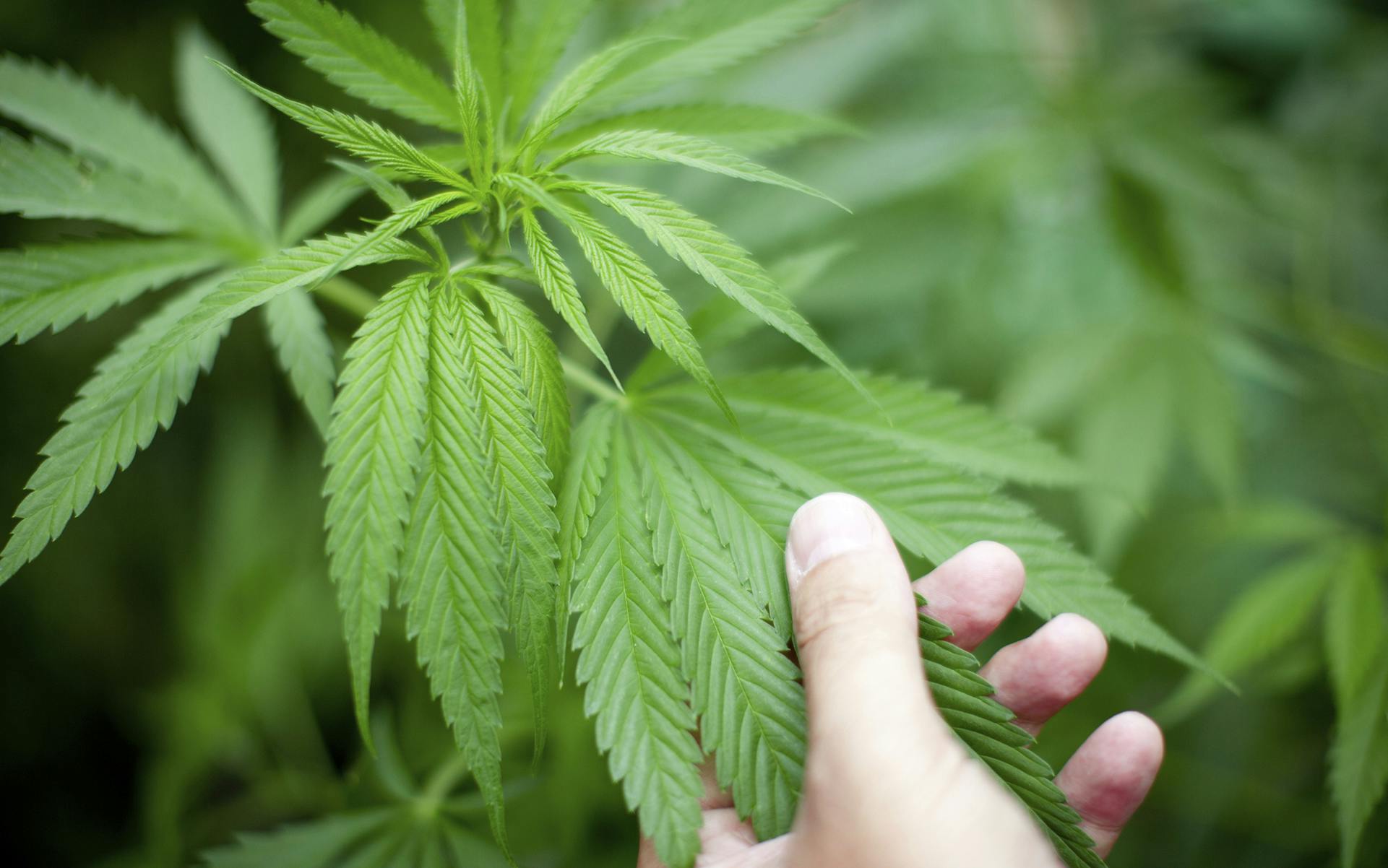Is marijuana legal in New Hampshire?
Current legality status
medical
Cannabis is legal for qualified patients with a licensed card.
Medical marijuana is legal in New Hampshire but recreational use is not.
Medical patients may possess up to two ounces of marijuana.
New Hampshire legislation defines marijuana as “all parts of any plant of the Cannabis genus of plants, whether growing or not; the seeds thereof; the resin extracted from any part of such plant; and every compound, salt, derivative, mixture, or preparation of such plant, its seeds, or resin.”
In 2017, possession of ¾ ounce or less of marijuana was decriminalized. Offenders simply pay a $100 fine.
However, possession of more than ¾ ounce of marijuana may still result in a misdemeanor conviction, up to one year in jail, and a fine of up to $350.
Sale and cultivation penalties are assessed according to the amount of marijuana.
Felony conviction for sale or cultivation of five pounds or more can result in 20 years in prison and fines of up to $300,000.
Home cultivation remains illegal for medical patients. However, a bill (SB 420) introduced in 2020 would have allowed patients and caretakers to cultivate their own marijuana. The bill has stagnated.
Several bills have attempted to legalize recreational marijuana in New Hampshire. Most recently, HB 1648 passed the House. It would allow adults over the age of 21 to possess up to ¾ ounce of marijuana, cultivate up to six plants, and give away quantities of marijuana to other adults provided the amounts are within possession limits. The bill awaits a vote in the Senate.
A 2019 poll found that 68% of New Hampshire residents support the legalization of recreational marijuana in small quantities.
New Hampshire medical marijuana laws
Medical marijuana was legalized in New Hampshire in 2013 with the passage of HB 573. The legislation allowed for possession of up to two ounces of marijuana for medical use purchased from a licensed dispensary.
Home cultivation is not permitted. However, a bill (SB 420) introduced in 2020 would have allowed patients and caretakers to cultivate their own marijuana. The bill has stagnated. A similar bill (HB 364) passed in 2019 but was vetoed by the governor.
New Hampshire qualifying conditions for medical marijuana
Qualifying conditions are physician-diagnosed ailments that can be treated by medical cannabis. In New Hampshire, these include:
- Cancer
- Ehlers-Danlos Syndrome
- Glaucoma
- HIV/AIDS
- Hepatitis C
- Amyotrophic lateral sclerosis/Lou Gehrig’s disease
- Muscular dystrophy
- Crohn’s disease
- Multiple sclerosis
- Chronic pancreatitis
- Spinal cord injury or disease
- Traumatic brain injury (TBI)
- Epilepsy
- Lupus
- Parkinson’s disease
- Alzheimer’s disease
- Ulcerative colitis
- Post-traumatic stress disorder (PTSD)
- Severe pain that has not responded to previously prescribed medication or surgical measures or for which other treatment options produced serious side effects
- A severely debilitating or terminal medical condition that produces one or more of the following:
- Elevated intraocular pressure
- Cachexia (wasting syndrome)
- Chemotherapy-induced anorexia
- Agitation of Alzheimer’s disease
- Severe pain
- Nausea or severe vomiting
- Seizures
- Severe, persistent muscle spasms
Two bills awaiting a vote in the Senate would add insomnia (HB 461) and opioid abuse (HB 366) to the eligible conditions.
For a complete list of qualifying conditions and guidelines, please refer to New Hampshire’s Qualifying Medical Conditions, or catch up on the latest New Hampshire cannabis news.
How to get a medical marijuana card in New Hampshire
New Hampshire residents may apply for a Registry Identification Card by mail by submitting:
- Application
- Physician’s certification
- Copy of a driver’s license, state ID, or other documentation of identity
- Copy of proof of residency
- Check or money order for $50
Cards are valid for one year.
The Therapeutic Cannabis Program in New Hampshire is run by the Department of Health and Human Services.
Does New Hampshire accept out-of-state medical cards?
Yes. Just a little ways up the road from Rhode Island and a neighbor to Maine, New Hampshire is another New England haven that respects out-of-state medical cannabis recommendations.
Please refer to the Therapeutic Cannabis Program Registry Rules, He-C 401.16 Visiting Qualifying Patients.
When does my New Hampshire medical marijuana card expire?
According to a state information sheet, Registry Identification Cards must be renewed annually by submitting an application, which includes a new Written Certification, and a $50 fee.
Renewal applications should be submitted at least one month prior to expiration.
New Hampshire marijuana growing laws
Home cultivation is not permitted in New Hampshire. A bill (SB 420) introduced in 2020 would have allowed patients and caretakers to cultivate their own marijuana. The bill has stagnated. A similar bill (HB 364) passed in 2019 was vetoed by the governor.
New Hampshire public consumption laws
A qualifying patient may use cannabis on privately owned property only with written permission of the property owner, or, in the case of leased property, with the permission of the tenant in possession of the property.
A tenant shall not allow a qualifying patient to smoke cannabis on rented property if smoking on the property violates the lease or the lessor’s rental policies that apply to all tenants at the property.
However, a tenant may permit a qualifying patient to use cannabis on leased property by ingestion or inhalation through vaporization even if smoking is prohibited by the lease or rental policies.
Nothing in this chapter shall exempt any person from arrest or prosecution for:
- Being under the influence of cannabis while:
- Operating a motor vehicle, commercial vehicle, boat, vessel, or any other vehicle propelled or drawn by power other than muscular power
- In their place of employment, without the written permission of the employer
- Operating heavy machinery or handling a dangerous instrument
- The use or possession of cannabis by a qualifying patient or designated caregiver for the purposes other than therapeutic use
- The smoking or vaporization of cannabis in any public place, including:
- A public bus or other public vehicle
- Any public park, public beach, or public field
- The possession of any cannabis in any of the following:
- The building and grounds of any preschool, elementary, or secondary school, which are located in an area designated as a drug-free zone
- A place of employment, without the written permission of the employer
- Any correctional facility
- Any public recreation center or youth center
- Any law enforcement facility
Any qualifying patient who is found to be in possession of cannabis outside of his or her home and is not in possession of his or her registry identification card may be subject to a fine of up to $100.
This possession of marijuana, including any adulterants or dilettantes, or 5 grams or less of hashish, can result in a class A misdemeanor, punishable by a fine of $2,000 and up to one year in jail.
Resources:
- Chapter 126-X of the Use of Cannabis for Therapeutic Purposes
- Chapter 318-B of the Controlled Drug Act
- Chapter 651, Section 2 of the New Hampshire Criminal Code
New Hampshire cannabis DUI laws
Even in medical-use and adult-use states, it is illegal to drive while under the influence. Even though New Hampshire is a medically legal state, it is illegal to drive while under the influence of cannabis.
Any driver in the state of New Hampshire is deemed to have implied consent to submit to a physical test and examination for the purpose of determining whether such person is under the influence of liquor or intoxicating drugs.
A refusal to submit to such tests shall result in driver’s license suspension for 180 days (or two years with a prior DUI offense), and is admissible as evidence in a court of law. The person under arrest has the right to request additional tests by a person of their own choosing at their own expense.
Penalties
- First offense: Class B misdemeanor; required to submit to an alcohol and drug screening within 14 days of conviction, required to complete a Department of Health and Human Services-approved impaired-driver education program prior to restoration of driving privileges; $500 fine; driver’s license will be revoked for nine months up to two years; may require installation of IID; and may require offender to submit to random urinalysis
- Second offense (within two years): Class A misdemeanor; mandatory 60 days in county correctional facility; $750 fine; must schedule substance use disorder evaluation within 30 days and complete a substance use disorder evaluation within 60 days of release; driver’s license shall be suspended for three years
- Second offense (within 10 years): Class A misdemeanor; 17 days in county correctional facility; $750 fine; must schedule substance use disorder evaluation within 30 days and complete a substance use disorder evaluation within 60 days of release; driver’s license shall be suspended for three years
- Third offense (within 10 years): Class A misdemeanor; mandatory 180 days in county correctional facility; $750 fine; must schedule substance use disorder evaluation within 30 days and complete a substance use disorder evaluation within 60 days of release; driver’s license shall be revoked indefinitely and shall not be restored for at least five years
- Fourth and subsequent offenses: Felony; mandatory 180 days in county correctional facility; $750 fine; must schedule substance use disorder evaluation within 30 days and complete a substance use disorder evaluation within 60 days of release; driver’s license shall be revoked indefinitely and shall not be restored for at least seven years
For more information, please refer to NH Title XXI, Chapter 265-A.
New Hampshire cannabis testing regulations
Testing regulations for the state’s “Therapeutic Cannabis Program” and its “Alternative Treatment Centers”—i.e., dispensaries—have remained largely unchanged since medical marijuana was made legal in 2014.
Cannabinoid profiles of products must be tested, as well as soil and water for contaminants. Mold, fungus, bacterial diseases, rot, pests, non-organic pesticides, mildew, and any other harmful contaminant identified by the department must be minimized.
Interestingly, metals are not specified on the list of contaminants tested for—New Hampshire is one of the few states that omits them. This could affect vape cart sales, as the state saw a rush of out-of-state customers when neighboring Massachusetts imposed a four-month ban on those products in September 2019, and even after the moratorium was modified in November to exclude medical marijuana.
Common questions about marijuana legalization in New Hampshire
Is recreational marijuana legal in New Hampshire?
No. Only medical marijuana is legal in New Hampshire. Legislation to legalize recreational marijuana has stalled.
Can you get a medical marijuana card for anxiety in New Hampshire?
New Hampshire’s list of qualifying conditions does not include anxiety. The original version of HB 461 introduced in 2019 suggested the addition of anxiety to the list of qualifying conditions, but it was stricken from the final version, which awaits consideration in the Senate.
Can you get a medical card with a felony in New Hampshire?
Convicted felons are prohibited from serving as caregivers or working at marijuana dispensaries. There are no restrictions on felons obtaining a medical marijuana card.
Can you grow your own cannabis in New Hampshire?
Cultivating cannabis at home in New Hampshire is not sanctioned by law and can result in incarceration or a fine depending on the weight of the plants. SB 420, introduced in 2020, would have legalized home cultivation, however, it has stagnated.
Are vape pens legal in New Hampshire?
Yes, vape pens are legal. Legislation specifies that “every compound, salt, derivative, mixture, or preparation of such plant, its seeds, or resin” is legal.
Learn more about marijuana legalization in New Hampshire
Keep up with the latest news about legalization in New Hampshire
Stay current on New Hampshire’s fast-changing laws by bookmarking Leafly politics and signing up for our newsletter.
By providing us with your email address, you agree to Leafly's Terms of Service and Privacy Policy.


